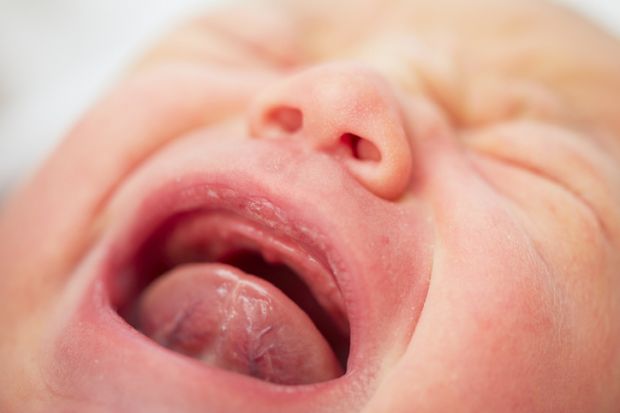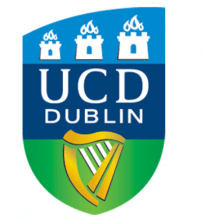My son was only three years old when I had the most surreal experience. I was working on an academic translation. It was 2am but I had imminent overlapping deadlines: a conference paper to write, several lectures to prepare, an article to revise and a translation to complete.
Suddenly, I hit a complex technical term. Despite the late hour, I automatically reached for my email and sent an enquiry to the Italian author of the chapter I was translating. “She’ll see it in the morning,” I thought. One minute later, her reply popped up in my inbox. It was 3am in Italy.
She explained to me that night-time was precious to her. Only then was she able to concentrate fully on her research. Yes, she sent her two babies to crèche during the day, but, as all parents know, there is an adjustment period in childcare facilities during which kids are exposed to all sort of new bugs, requiring them to be regularly sent home as their temperatures rise yet again.
My colleague, who had been granted tenure before she had her first baby, also told me she felt under pressure to boost her productivity and research record. She needed to prove that she deserved her post as she felt constantly under scrutiny by male and childless female academics.
As a mother and an academic who had been in precarious employment for a few years, I was shocked. So was there no light at the end of the tunnel? Will academic mothers always be made to feel different, even after achieving tenure? Was this because of a shortfall in adequate policies to support women who wanted to become mothers, or a systemic prejudice against women in academia?
The recent avalanche of articles raising awareness about the impact that caring responsibilities have had on women academics during the Covid-19 pandemic generally overlooks the fact that discrimination and bias towards mothers are systemic, and not just caused by the pandemic’s contingent constraints. On the one hand, we have the demands of a neoliberal higher education system ruled by key performance indicators measuring productivity and success rate. On the other hand, we are failing to admit that building a genuinely equitable system entails generating adequate policies that take into account the needs of vulnerable workers, who might require more time and resources to attain results. For academic mothers, this means adequate breastfeeding facilities all around campus, subsidised parental leave, tenure clock stops, reduction of teaching and administration load, and an ongoing budget for additional teaching resources.
The lack of policies in this area – or their failed enforcement – is probably because of an under-representation of mothers in key leadership posts. But the consequences have become obvious during the pandemic.
As lecturers all around the world turned into the unsung heroes of our economy, familiarising themselves with new platforms and software to deliver online classes in both synchronous and asynchronous mode – not to mention planning new assessment practices in exhausting Zoom meetings – institutions reassured those with caring and childcare responsibilities that they were not expected to perform as in “normal” circumstances. What did that mean, however? Were universities prepared to substantially reduce the teaching and administrative loads of lecturers who had to carry the burden of home-schooling and full-time childcare in addition to the increased workload generated by remote teaching? Were vulnerable workers given extended deadlines or additional resources to mark exam papers? My experience, as well as that of many colleagues in Europe, the US and Canada, shows that the answer to both questions was no.
According to a survey carried out by the National Women’s Council of Ireland, 85 per cent of women have increased caring responsibilities since Covid-19. Additionally, about half of the respondents to a nationwide survey by the Irish Federation of University Teachers reported a worse life-work balance, increased stress, and health issues; 63 per cent of the respondents identified as women and 56 per cent have caring responsibilities, including 45 per cent home-schooling one child or more.
It is also not surprising that 49 per cent of the respondents thought that “family responsibilities needed to be taken into consideration when workload was being allocated”. But, to the best of our knowledge, this is not currently happening. Universities around the world are busy laying off staff in precarious employment, especially women and women of colour. In a memo that was later retracted as a result of global consternation, Florida State University warned its employees that, if working from home, they would have to provide evidence of having proper childcare arrangements in place.
Even in pre-coronavirus times, the “baby penalty” was a harsh reality of academic life. In the “new normal”, it seems, the situation is even worse. You can have either a job or a child. If you want both, be ready to sacrifice your physical and mental health.
Enrica Maria Ferrara is a lecturer in the School of Languages, Cultures and Linguistics at University College Dublin.
Register to continue
Why register?
- Registration is free and only takes a moment
- Once registered, you can read 3 articles a month
- Sign up for our newsletter
Subscribe
Or subscribe for unlimited access to:
- Unlimited access to news, views, insights & reviews
- Digital editions
- Digital access to THE’s university and college rankings analysis
Already registered or a current subscriber?










